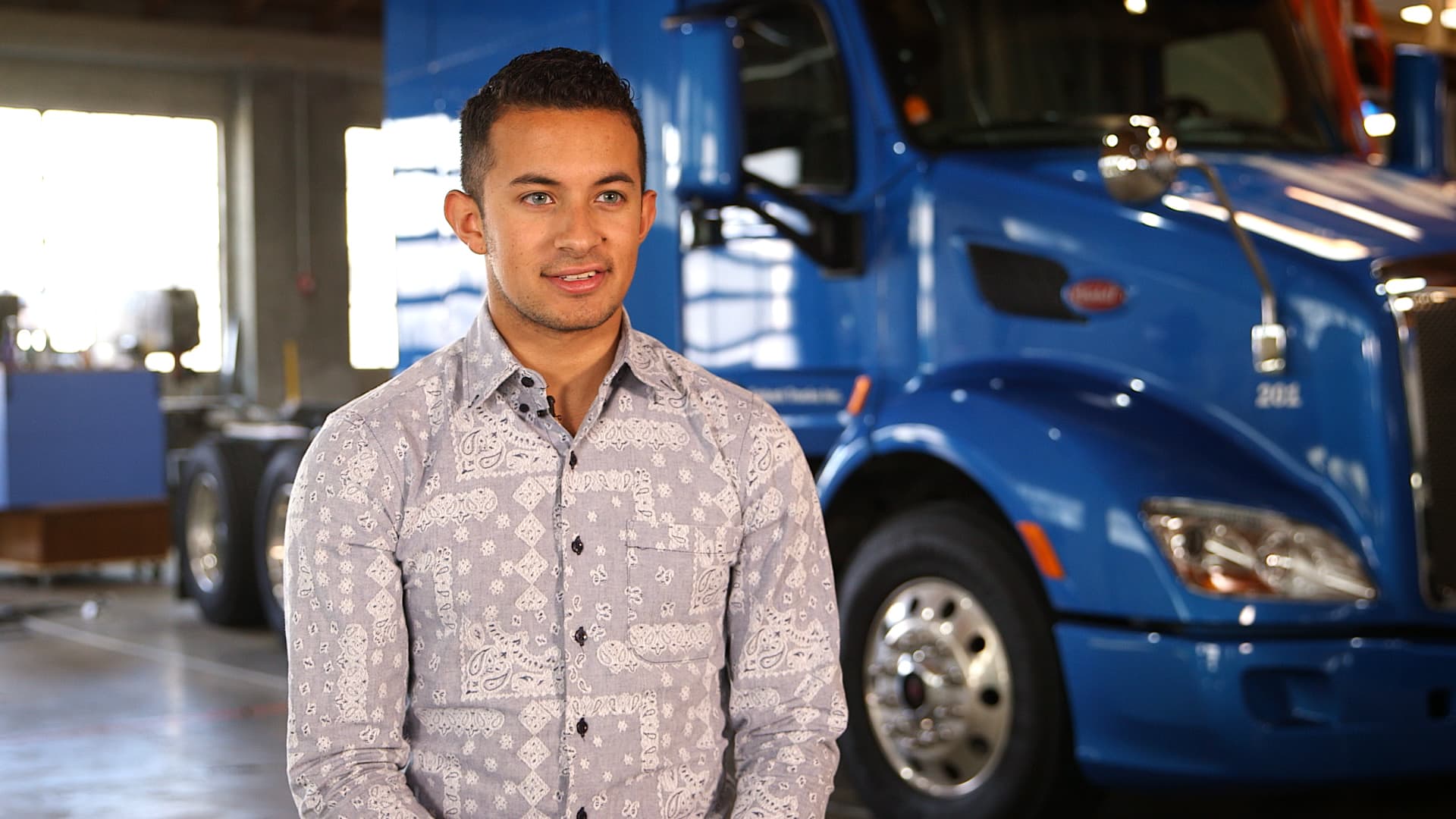Embark CEO Alex Rodrigues, just 25, is taking his driverless truck start-up public via SPAC

Embark, a self-driving truck venture led by 25-year-old CEO Alex Rodrigues, announced a deal to go public via SPAC on Wednesday.
San Francisco-based Embark plans to combine in a $5.2 billion deal with Northern Genesis Acquisition Corp. II, a special purpose acquisition company, to become a publicly traded stock. The driverless tech company expects to raise about $614 million in gross cash proceeds, including a $200 million private investment from Knight-Swift Transportation Holdings, Sequoia Capital and Tiger Global, among others.
The proceeds are expected to fully fund Embark’s business through 2024. It’s the latest self-driving truck company to make a deal to go public in recent months. Plus, formerly known as Plus AI, announced its own SPAC deal last month, and another rival, TuSimple Holdings, took the more traditional initial public offering route and started trading in April.
Amazon placed an order for up to 1,000 autonomous truck systems from Plus and acquired the option to buy a stake in the Embark competitor, according to a filing. Bloomberg first reported on that deal. Embark faces additional competition from autonomous firms getting into freight hauling, including Alphabet-backed Waymo and other venture-funded start-ups such as Kodiak and Aurora.
Founded in 2016, Embark prides itself on being the first to test self-driving trucks on public roads in the U.S., Rodrigues told CNBC’s “Squawk on the Street” on Wednesday. He added that the company licenses its own software on a per-mile basis and partners with leading carriers in a way that’s distinct from other market players.
“We’re able to scale up really, really quickly by leveraging the purchasing power and the operational expertise of some of the largest carriers in the country,” Rodrigues said.
Embark is currently running an internal development fleet with safety drivers in the vehicles. “It’s really a piece of our safety strategy, but the technology is there,” Rodrigues said. The driver doesn’t have to touch the wheel while the vehicle is moving between towns and transfer points.
“Knight-Swift believes that the most effective way to scale autonomous truck technology is by having carriers and their existing drivers operate the trucks in service of shippers, leveraging the ecosystem’s existing strengths and relationships,” David Jackson, CEO of Knight-Swift, said in a statement. “We have chosen to partner with and invest in Embark because they have championed this strategy and demonstrated their ability to execute against a clear technical and operational roadmap to commercialize it at scale.”
Rodrigues, who started Embark with chief technology officer Brandon Moak, expects 2024 to 2025 to be “just the beginning of the inflection point” for the company. He noted that trucking is a $700 billion industry in the United States. He also expressed confidence in the SPAC deal.
“On the technology side, this is something we’re very familiar with,” Rodrigues said. “On the business side, this is definitely something that’s going to be new to me, going to be new to the company. But we feel really confident, because I have an exceptional team and I have an exceptional group of advisors, folks like Sequoia Capital, folks like the Northern Genesis team who are going to be here with us as we build this company. We’ve seen this happen many times before.”
Rodrigues and Moak met and collaborated while studying mechatronics engineering at the University of Waterloo in Ontario. They built Canada’s first self-driving vehicle, an autonomous golf cart named “Marvin,” out of Rodrigues’ garage.
Embark, now with about 120 full-time employees, is partnering with Anheuser-Busch InBev, Werner Enterprises and other major shippers and cargo haulers to make sure that autonomous systems work within the growing ground freight industry. While the company has declined to discuss Embark’s paying clients, CNBC previously reported that Amazon, for one, has used Embark for some cargo-hauling on U.S. highways.
— CNBC’s Lora Kolodny and Reuters contributed to this report.